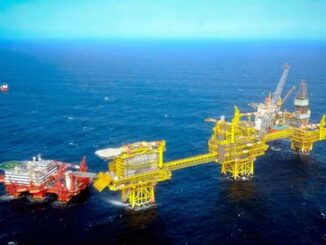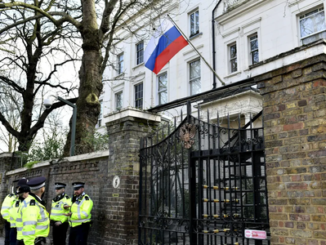
In a bizarre twist of environmental policy, Germany’s push toward Net Zero emissions has evolved into what critics are calling a “tax on the sun.” This comes amid the country’s aggressive shutdown of reliable energy sources, including nuclear and now coal plants, under the banner of green energy. The Green Party-led initiatives, once hailed as progressive, are now accelerating the deindustrialization of Europe’s largest economy, leaving households and industries grappling with soaring costs and unreliable power. As Germany doubles down on renewables, the broader European Union faces similar pitfalls, with policies that prioritize ideology over energy security and economic stability.
Are you Paying High Taxes in New Jersey, New York, or California?
The ‘Sun Tax’: From Incentives to Penalties
Germany’s Renewable Energy Sources Act (EEG) has long encouraged solar adoption through subsidies, tax breaks, and feed-in tariffs. However, recent amendments introduce a levy on self-consumed electricity from solar installations exceeding 10 kilowatts—effectively taxing homeowners and businesses for harnessing sunlight on their own properties.
Germany’s Latest Masterpiece: The “Sun Tax”!
First, they begged citizens to go solar—offering cash, tax breaks, and feed-in tariffs. Germans delivered, turning rooftops into power plants.
Now? Surprise! That sunlight isn’t free. Germany is slapping solar users with a literal… pic.twitter.com/LBoJ0B0LtI
— Camus (@newstart_2024) August 9, 2025
A viral video captured public frustration, with one woman exclaiming, “First, Germany made everyone go solar and now they are taxing the freaking sun.” This “sun tax” is seen not as environmental stewardship but as a revenue grab by the leftist coalition government, dominated by Social Democrats and Greens, to offset the massive costs of their energy transition. This policy shift exemplifies the contradictions in Germany’s Energiewende (energy transition), initiated under former Chancellor Angela Merkel and intensified by the current administration. What began as a noble quest for sustainability has morphed into burdensome regulations that punish innovation and self-sufficiency.
Shuttering Stable Power: Nuclear Gone, Coal
Next, the Green Party’s influence has been pivotal in dismantling Germany’s energy backbone. In April 2023, the country completed its nuclear phase-out, eliminating a source that once provided about 20% of its electricity.
This decision, rooted in anti-nuclear sentiment post-Fukushima, ignored a global nuclear renaissance and left Germany vulnerable to energy shortages. Now, coal plants—another pillar of baseload power—are on the chopping block, with closures accelerating to meet Net Zero targets. These moves have cost taxpayers over €1.5 trillion, funding intermittent wind and solar sources that require fossil fuel backups for reliability.
GERMANY: Why is the west hell bent on destroying itself? Over the last decade China has increased electricity production by 70% while production in Germany has declined by 10%. Germany has taken all of its nuclear power plants offline and must import the bulk of its energy.
h/t… pic.twitter.com/nBzkDE4WAn
— @amuse (@amuse) March 25, 2025
result? Blackouts, shortages, and the highest electricity prices in Europe. Germany’s pivot has increased dependency on imports, including liquefied natural gas (LNG) from the US and Qatar, but even these supplies are at risk. Qatar has threatened to halt exports over EU climate regulations, potentially devastating energy-short nations like Germany.
Deindustrialization: The High Price of Green Ambition
Net Zero policies are not just straining energy grids; they’re eroding Germany’s industrial might. High energy costs and regulatory uncertainty have driven manufacturing output down for three consecutive years, with companies like BASF and Volkswagen slashing jobs and relocating operations abroad.
Investment is falling at €67 billion annually, and growth forecasts are in tatters amid recession fears. Unemployment is rising, tax revenues are falling, and a “wave of insolvencies” looms, worse than the 2009 financial crisis.This deindustrialization extends beyond Germany. Europe’s reliance on China for 98% of solar panels and critical minerals underscores the irony: Net Zero is offshoring jobs and industries while claiming to build a green future.
In the UK, similar policies under Prime Minister Keir Starmer restrict North Sea oil production through taxes as high as 78% and bans on new licenses, projecting gas import dependency to soar to 94% by 2050.
This has prompted firms like BP to consider an exodus, mirroring Germany’s plight and hiking household energy bills by hundreds of pounds annually. Across Europe, the cutoff of cheap Russian gas—from over 40% in 2021 to just 11% in 2024—has exacerbated vulnerabilities, with no clear alternatives in sight.
France, too, faces nuclear outages and delayed reactor builds, diverting resources to renewables and straining the continent’s grid.
A Cautionary Tale for Europe and Beyond
Germany’s Net Zero saga serves as a stark warning: policies that dismantle stable energy without viable replacements invite economic sabotage. The “sun tax” and plant closures aren’t saving the planet—they’re burdening citizens, crippling industries, and fostering dependency on foreign powers. As Europe’s powerhouse falters, the EU’s dream of a green utopia risks turning into an energy nightmare, with deindustrialization as the bitter endpoint. It’s time to reassess: Balance climate goals with realistic strategies that prioritize affordability, security, and growth. Otherwise, Net Zero might zero out Europe’s economic future entirely. I, for one, am thrilled to be in the United States with the most outstanding team running the Energy Departments of the EPA, Department of the Interior, and the Department of Energy that we have ever had as a nation.
Is Oil & Gas Right for Your Portfolio?
Crude Oil, LNG, Jet Fuel price quote
ENB Top News
ENB
Energy Dashboard
ENB Podcast
ENB Substack






